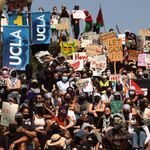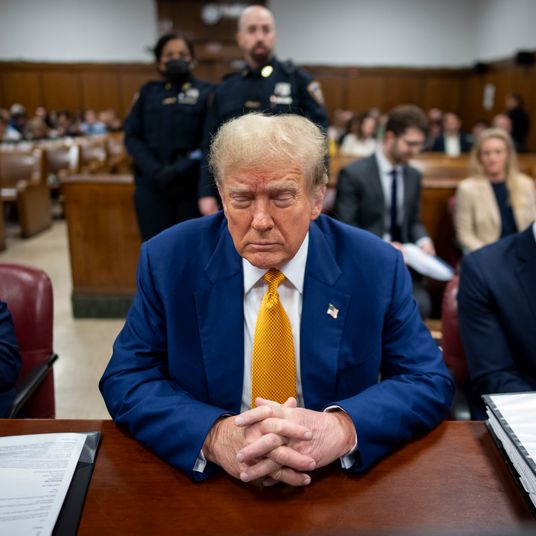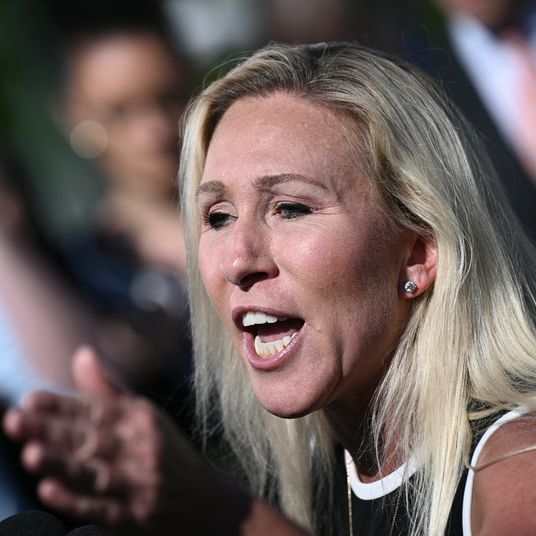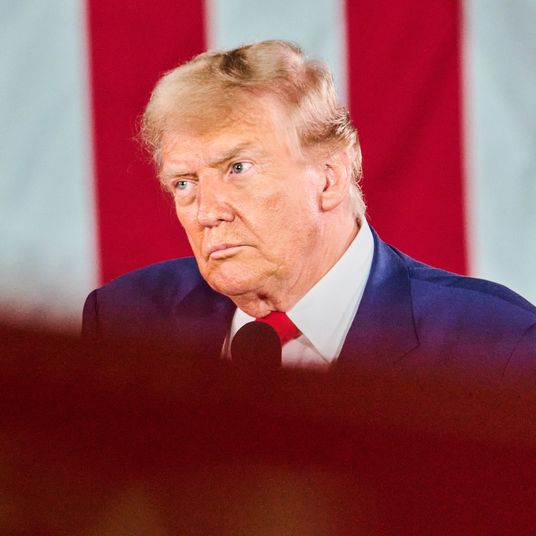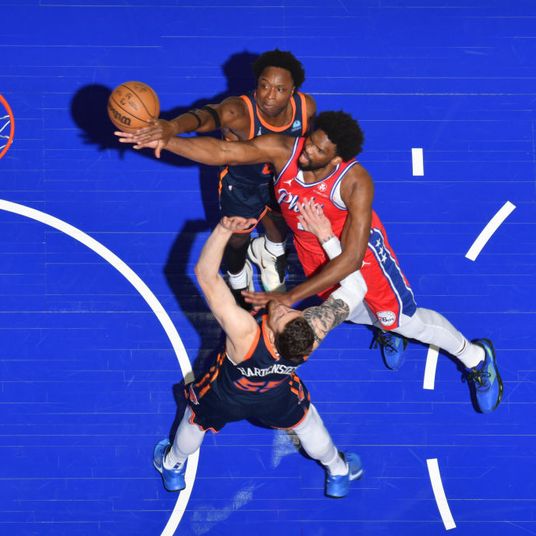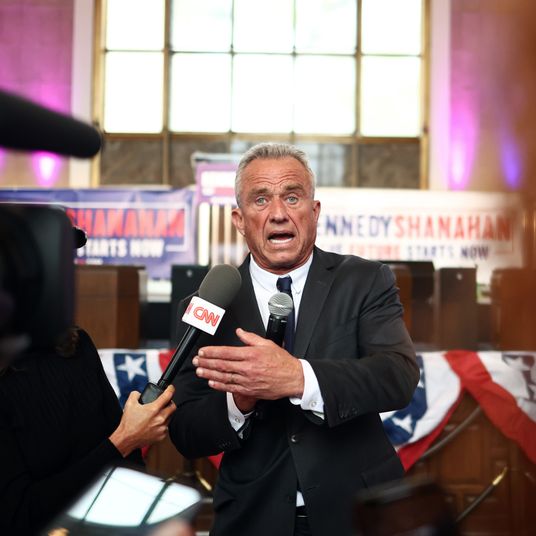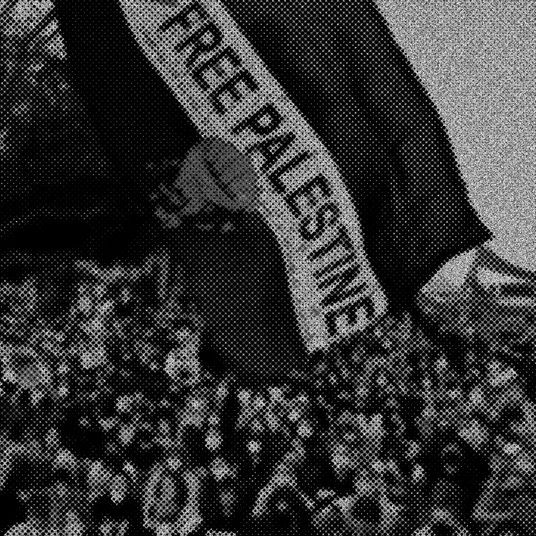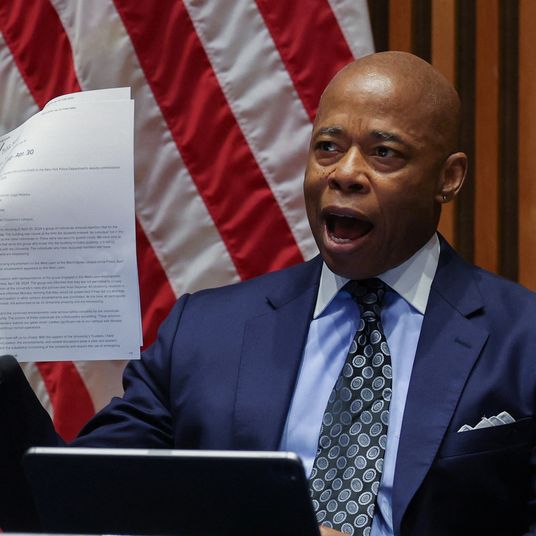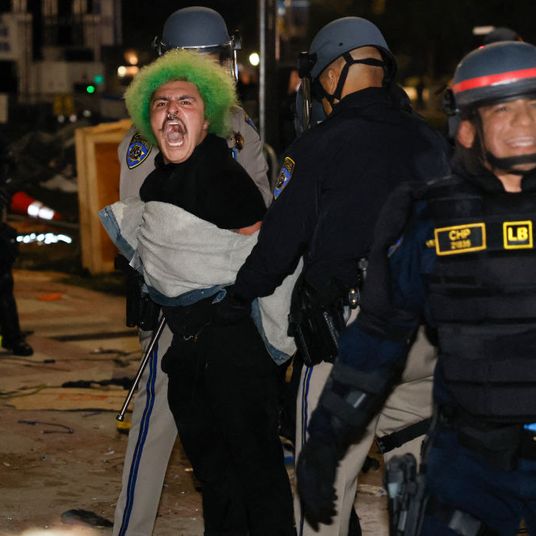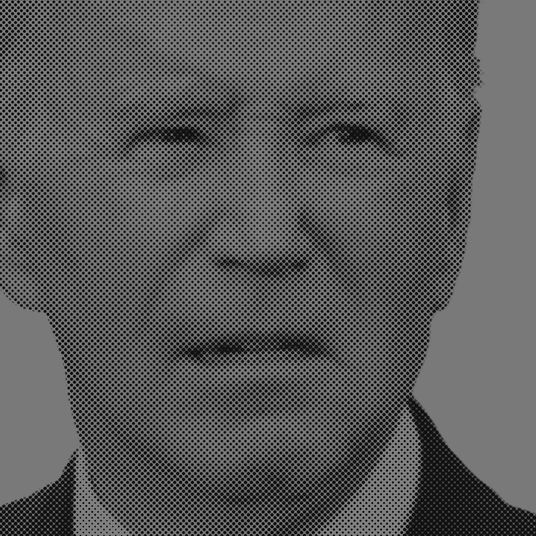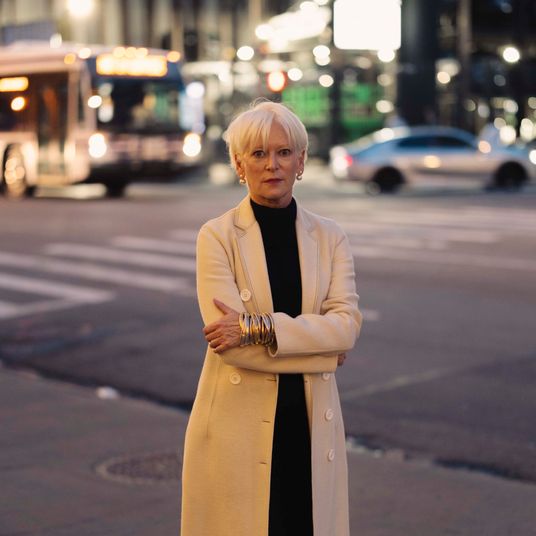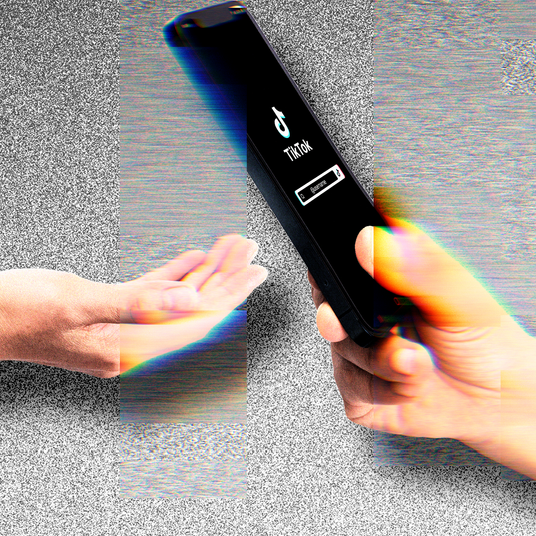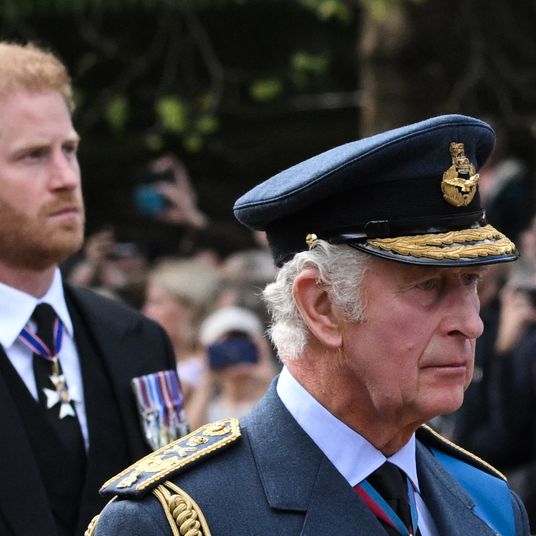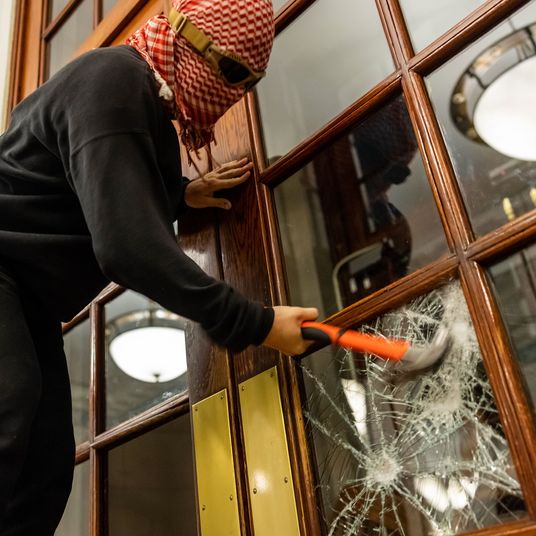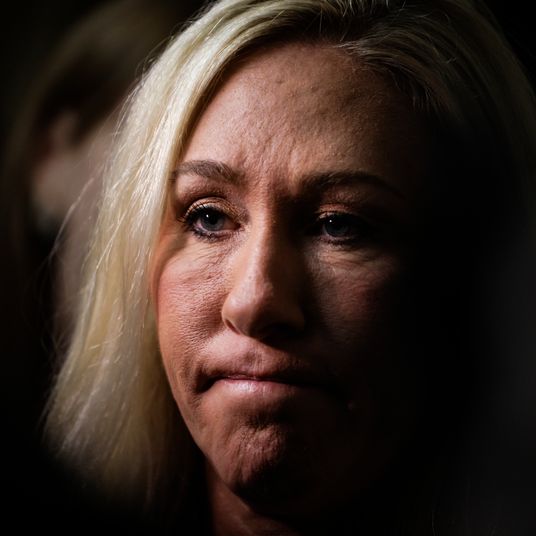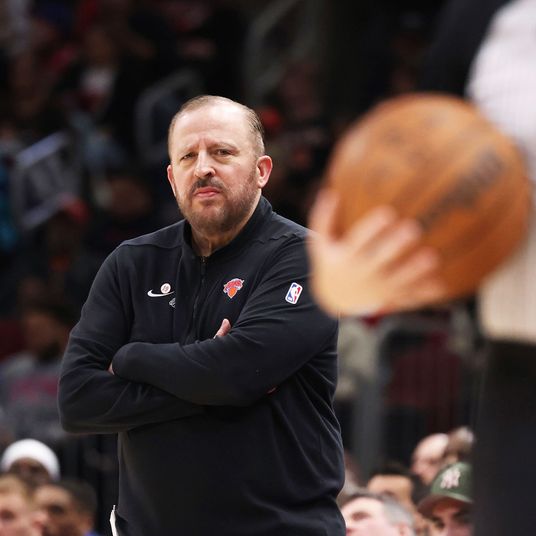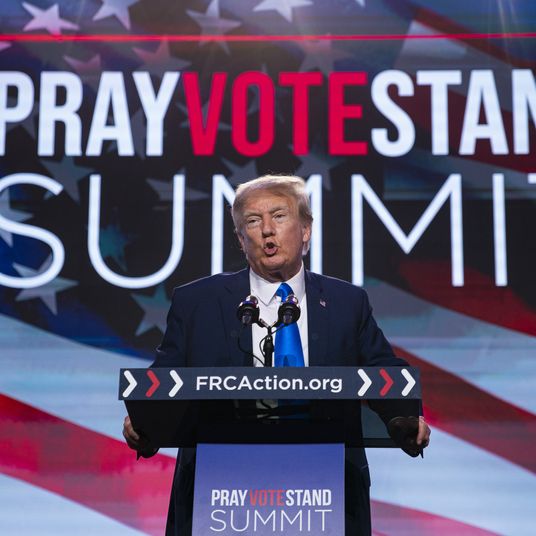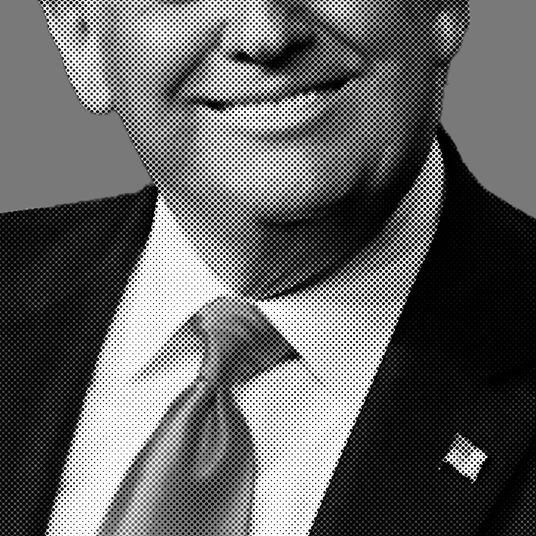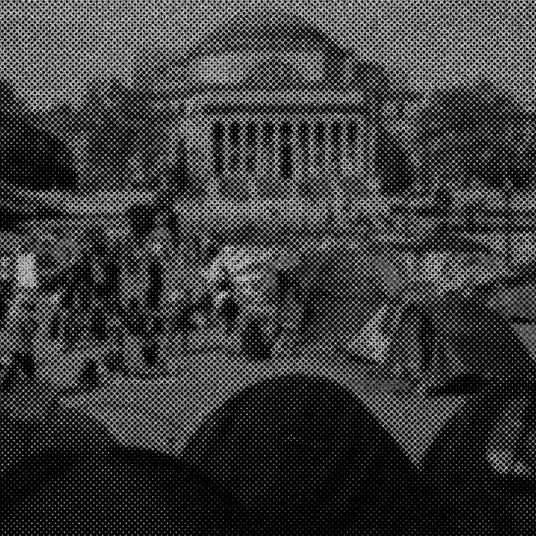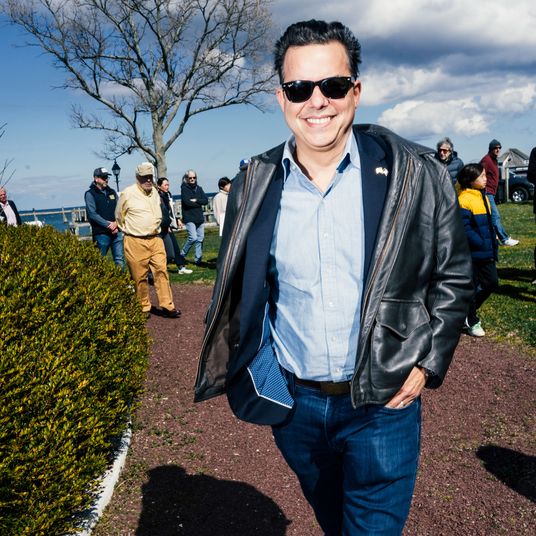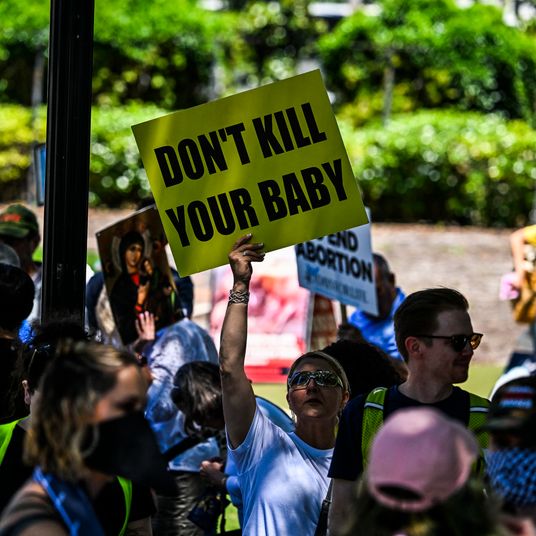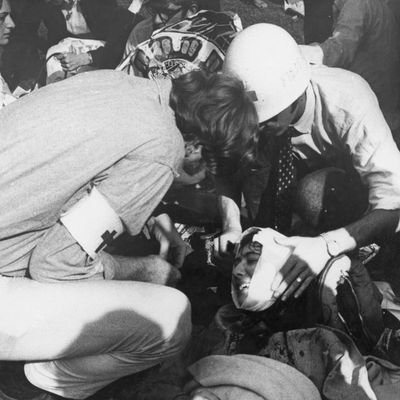
When the Democratic National Committee chose Chicago as the site of the party’s 2024 national convention a year ago, no one knew incumbent presidential nominee Joe Biden would become the target of major antiwar demonstrations. The fateful events of October 7 were nearly six months away, and Biden had yet to formally announce his candidacy for reelection. So there was no reason to anticipate comparisons to the riotous 1968 Democratic Convention, when images of police clashing with anti–Vietnam War protesters in the Windy City were broadcast into millions of homes. Indeed, a year ago, a more likely analog to 2024 might have been the last Democratic convention in Chicago in 1996; that event was an upbeat vehicle for Bill Clinton’s successful reelection campaign, which today is mainly remembered for a “Macarena” dance break.
Instead, thanks to intense controversy over Israel’s lethal operations in Gaza and widespread global protests aimed partly at Israel’s allies and sponsors in Washington, plans are well underway for demonstrations in Chicago during the August 19 to 22 confab. Organizers say they expect as many as 30,000 protesters to gather outside Chicago’s United Center during the convention. As in the past, a key issue is how close the protests get to the actual convention. Obviously, demonstrators want delegates to hear their voices and the media to amplify their message. And police, Chicago officials, and Democratic Party leaders want protests to occur as far away from the convention as possible. How well these divergent interests are met will determine whether there is anything like the kind of clashes that dominated Chicago ’68.
There are, however, some big differences in the context surrounding the two conventions. Here’s why the odds of a 2024 convention showdown rivaling 1968 are actually fairly low.
.
Gaza isn’t Vietnam.
Horrific as the ongoing events in Gaza undoubtedly are, and with all due consideration of the U.S. role in backing and supplying Israel now and in the past, the Vietnam War was a more viscerally immediate crisis for both the protesters who descended on Chicago that summer and the Americans watching the spectacle on TV. There were over a half-million American troops deployed in Vietnam in 1968, and nearly 300,000 young men were drafted into the Army and Marines that year. Many of the protesters at the convention were protesting their own or family members’ future personal involvement in the war, or an escape overseas beyond the Selective Service System’s reach (an estimated 125,000 Americans fled to Canada during the Vietnam War, and how to deal with them upon repatriation became a major political issue for years).
Even from a purely humanitarian and altruistic point of view, Vietnamese military and civilian casualties ran into the millions during the period of U.S. involvement. It wasn’t common to call what was happening “genocide,” but there’s no question the images emanating from the war (which spilled over catastrophically into Laos and especially Cambodia) were deeply disturbing to the consciences of vast numbers of Americans.
Perhaps a better analogy for the Gaza protests than those of the Vietnam era might be the extensive protests during the late 1970s and 1980s over apartheid in South Africa (a regime that enjoyed explicit and implicit backing from multiple U.S. administrations) and in favor of a freeze in development and deployment of nuclear weapons. These were significant protest movements, but still paled next to the organized opposition to the Vietnam War.
.
Political conventions are different today.
One reason the 1968 Chicago protests created such an indelible image is that the conflict outside on the streets was reflected in conflict inside the convention venue. For one thing, 1968 nominee Hubert Humphrey had not quelled formal opposition to his selection when the convention opened. He never entered or won a single primary. One opponent who did, Eugene McCarthy, was still battling for the nomination in Chicago. Another, Robert F. Kennedy, had been assassinated two months earlier (1972 presidential nominee George McGovern was the caretaker for Kennedy delegates at the 1968 convention). There was a highly emotional platform fight over Vietnam policy during the convention itself; when a “peace plank” was defeated, New York delegates led protesters singing “We Shall Overcome.” Once violence broke out on the streets, it did not pass notice among the delegates, some of whom had been attacked by police trying to enter the hall. At one point, police actually accosted and removed a TV reporter from the convention for some alleged breach in decorum.
By contrast, no matter what is going on outside the United Center, the 2024 Democratic convention is going to be totally wired for Joe Biden, with nearly all the delegates attending pledged to him and chosen by his campaign. Even aside from the lack of formal opposition to Biden, conventions since 1968 have become progressively less spontaneous and more controlled by the nominee and the party that nominee directs (indeed, the chaos in Chicago in 1968 encouraged that trend, along with near-universal use of primaries to award delegates, making conventions vastly less deliberative). While there may be some internal conflict on the platform language related to Gaza, it will very definitely be resolved long before the convention and far away from cameras.
Another significant difference between then and now is that convention delegates and Democratic elected officials generally will enter the convention acutely concerned about giving aid and comfort to the Republican nominee, the much-hated, much-feared Donald Trump. Yes, many Democrats hated and feared Richard Nixon in 1968, but Democrats were just separated by four years from a massive presidential landslide and mostly did not reckon how much Nixon would be able to straddle the Vietnam issue and benefit from Democratic divisions. That’s unlikely to be the case in August of 2024.
.
Brandon Johnson isn’t Richard Daley.
Chicago mayor Richard J. Daley was a major figure in the 1968 explosion in his city. He championed and defended his police department’s confrontational tactics during the convention. At one point, when Senator Abraham Ribicoff referred from the podium to “gestapo tactics in the streets of Chicago,” Daley leaped up and shouted at him with cameras trained on his furious face as he clearly repeated an obscene and antisemitic response to the Jewish politician from Connecticut. Beyond his conduct on that occasion, “Boss” Daley was the epitome of the old-school Irish American machine politician and from a different planet culturally than the protesters at the convention.
Current Chicago mayor Brandon Johnson, who was born the year of Daley’s death, is a Black progressive and labor activist who is still fresh from his narrow 2023 mayoral runoff victory over the candidate backed by both the Democratic Establishment and police unions. While he is surely wary of the damage anti-Israel and anti-Biden protests can do to the city’s image if they turn violent, Johnson is not without ties to protesters. He broke a tie in the Chicago City Council to ensure passage of a Gaza cease-fire resolution earlier this year. His negotiating skills will be tested by the maneuvering already underway with protest groups and the Democratic Party, but he’s not going to be the sort of implacable foe the 1968 protesters encountered.
.
The whole world (probably) won’t be watching.
The 1968 Democratic convention was from a bygone era of gavel-to-gavel coverage by the three broadcast-television networks that then dominated the media landscape and the living rooms of the country. When they were being bludgeoned by the Chicago police, protesters began chanting, “The whole world is watching,” which wasn’t much of an exaggeration. Today’s media coverage of major-party political conventions is extremely limited and (like coverage of other events) fragmented. If violence breaks out this time in Chicago, it will get a lot of attention, albeit much of it bent to the optics of the various media outlets covering it. But the sense in 1968 that the whole nation was watching in horror as an unprecedented event rolled out in real time will likely never be recovered.
More politics
- Trump: I’m Not Sleeping in Court, I’m Resting My ‘Beautiful Blue Eyes’
- What Happened in the Trump Trial Today: Gag Hearing and Cohen on Tape
- MTG and Gaetz Manage to Smear Both Jews and Fellow Christians





